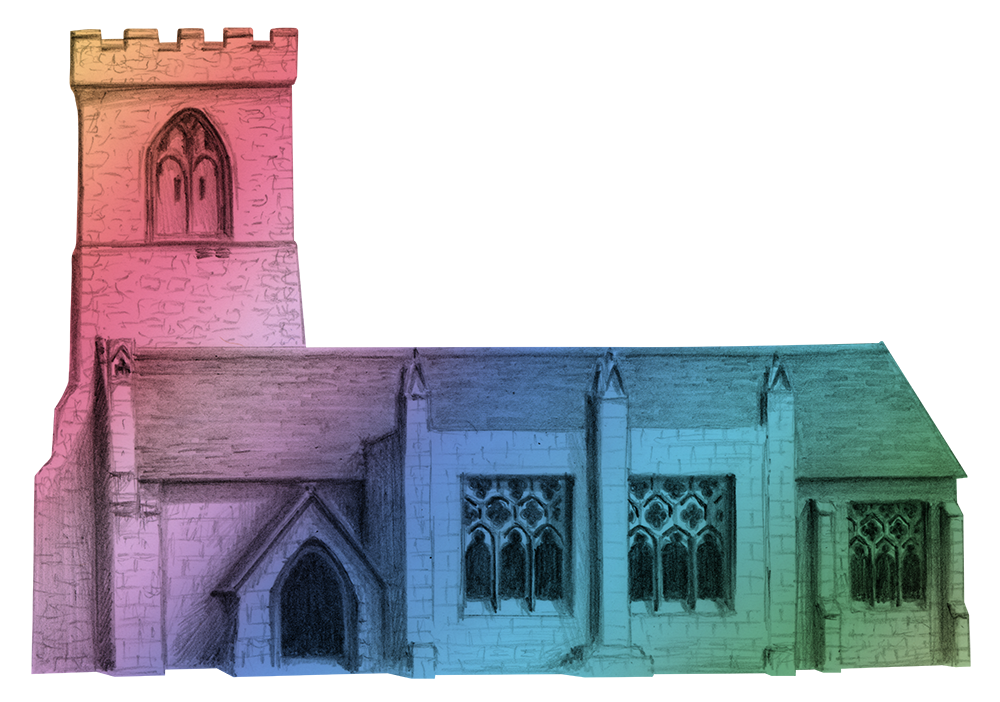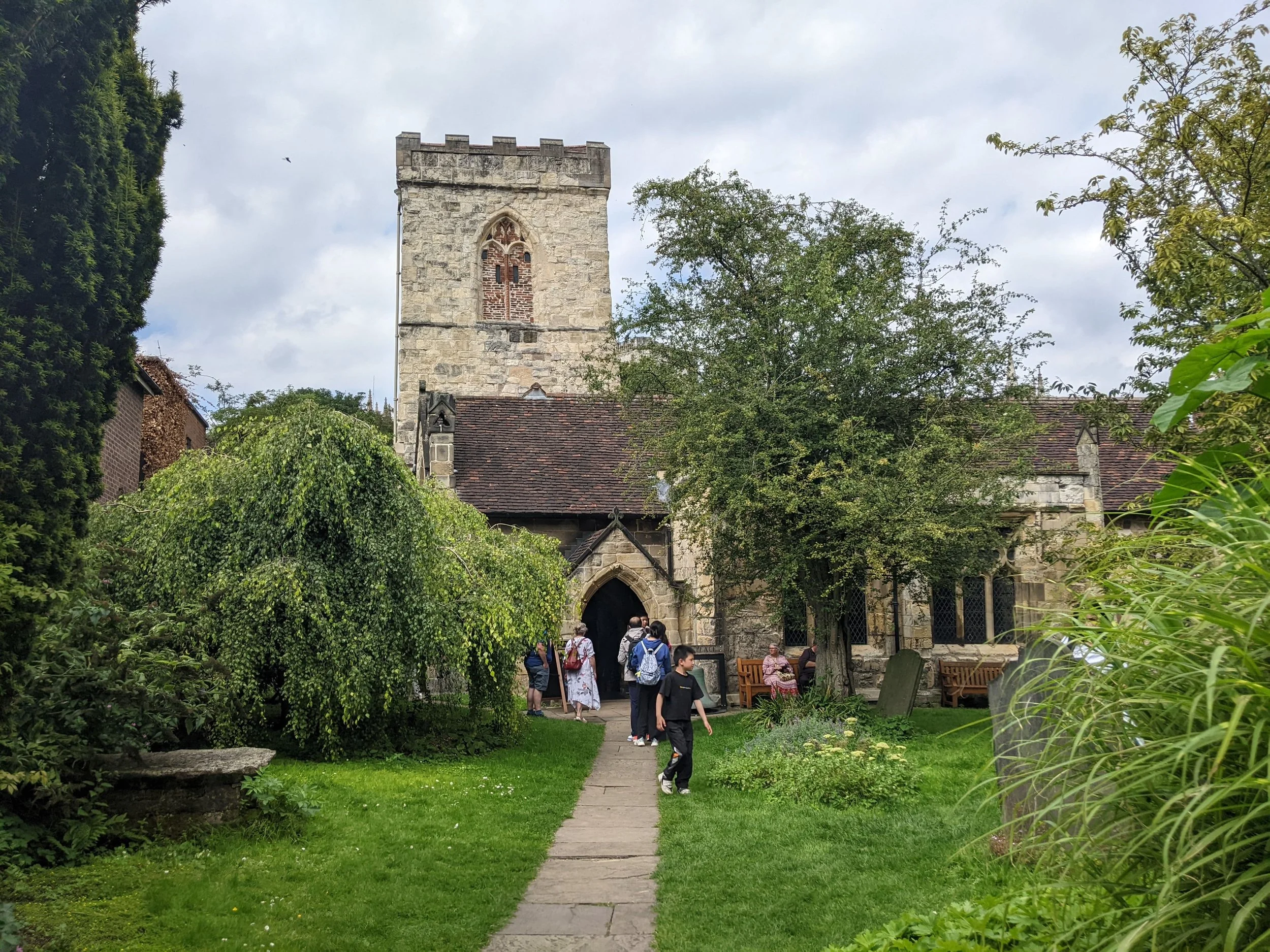Holy Trinity Church:
Queer York
Directions to Holy Trinity Church
Holy Trinity Church is a surprising site of major significance in the history of queer sexuality in the United Kingdom. It was here that on the 30th March 1834 Anne Lister and Ann Walker took communion together, having some weeks earlier exchanged vows and rings. This action is often described as the UK’s ‘first same-sex marriage.’
Anne Lister is a well-known figure, both locally and nationally. You may know her via the student accommodation block that carries her name - Anne Lister College, on the University of York’s East Campus. You might also have seen the BBC’s 2019 mini-series Gentleman Jack, which told the story of Anne’s life. Anne was born into a wealthy landowning family in Halifax in 1791. At the age of 14, she was sent to board at the Manor School in York, now King’s Manor. Here, she began her first relationship with another woman and wrote about it in her diary. Anne went on to write over 6000 pages of diary entries, documenting various aspects of her life, including her business activities, her extensive travel and her relationships with women. These were penned in a secret code she created using algebraic symbols and the Greek alphabet.
In the 1890s, Anne’s diaries were discovered at her former home, Shibden Hall in the West Riding of Yorkshire, and were partially decoded by one of her descendents, John Lister. Fearing the socially conservative environment of the time, John kept the diaries secret and returned them to their hiding place. The diaries were later moved to the West Yorkshire Archive Service where they were finally decoded and published by researcher Helena Whitbread and Anne’s story came to light.
Discussions of Anne’s life often included the epithet that she was ‘the first modern lesbian’. But what does this mean? Certainly, women have desired and had sex and relationships with other women throughout history. Anne was not the first. And in what ways was Anne modern? What does the notion of modernity have to do with sexuality?
Anne’s story, including how it is remembered and retold today, opens up important sociological questions that we will explore in this podcast: how have understandings of sexuality changed over time? How can we understand and describe queer figures from other historical periods? And in what ways are historical queer figures, like Anne Lister, relevant to contemporary sexual politics? To explore these questions, we will draw on the work of gender and sexuality scholars, including the historian and philosopher Michel Foucault and the sociologist Mary McIntosh.
Moving from histories of sexuality to contemporary sexual politics, we will discuss the controversy that arose around the wording of the historical site plaque that was installed at Holy Trinity Church to commemorate Anne’s life and her marriage to Ann Walker. We will look at this controversy to see what it can tell us about the importance of remembering queer history, how remembering is a political practice in the present and, in the broadest sense, about the politics of knowledge production in relation to gender and sexuality.
Listen to the podcast below to learn more.
James Cummings is a Lecturer in Sociology at the University of York. His research and teaching interests are in the sociology of everyday life, identity, gender and sexuality. His research explores queer sexualities, identities and communities in the United Kingdom and the People’s Republic of China. He is author of the book The Everyday Lives of Gay Men in Hainan: Sociality, Space and Time (Palgrave Macmillan, 2022).





